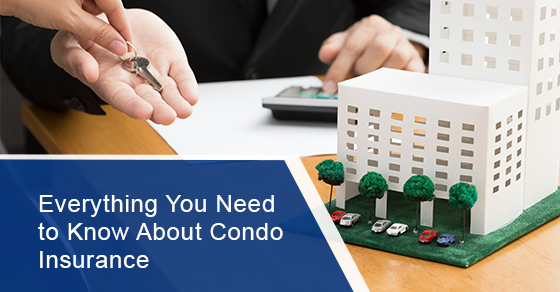
Everything You Need to Know About Condo Insurance
Posted by on Dec 23, 2021 in
If you own a condo, whether it is an apartment or townhouse, you need insurance to protect your home and belongings. Although some condos offer coverage for common areas, your own personal unit and all the belongings inside are not included. As well, condos have certain risks you might not have when you own a house outright. For example, if your unit floods due to your washing machine or dishwasher, you could be liable for damage to other units or common areas. Therefore, home insurance designed specifically for condo owners is your safest bet to protect your own home and belongings, as well as to reduce liability for accidents or damage to other units. With that in mind, here’s everything you need to know about condo insurance.
What does condo insurance cover?
Because your personal belongings are not covered by your condo corporation, your condo insurance will cover the following:- Furniture
- Electronics
- Clothing
- Jewellery
- Art
- All other personal belongings
- Living expenses
- Personal liability
- Upgrades or improvements to your unit
- Loss assessments for damage made by your condo board association
What doesn’t condo insurance cover?
The following are not covered by condo insurance:- Vehicle theft or damage, which requires auto insurance.
- Tenant damage or their property if you rent your condo for either the short or long term.
Is condo insurance more expensive because it is unique?
No; in most cases, it is actually more affordable than most home insurance policies. This is because as a condo owner you aren’t responsible for structural damage, as this is covered by the condo corporation’s insurance. Although you can see higher costs based on the types of coverage you include, a traditional, standard condo insurance policy will cost less than a standard home insurance policy.Do I need condo insurance to live in a condo complex?
No, condo insurance is not mandatory. However, where you might find it necessary is regarding either your mortgage provider or specific bylaws for your condo. Be sure you understand the condo bylaws in your region so you know what is required. Also, regardless of the mortgage or condo corporation rules, you really should have insurance to protect your belongings and property.Condo Insurance vs. Home Insurance
The main difference between condo and home insurance is that condo insurance does not cover structural damage like home insurance. So, in the case of a fire for example, structural damage is covered by your condo corporation’s insurance. Although your condo insurance does cover improvements or betterments to your own unit, the structure of the building itself is the condo corporation’s responsibility.What if I am at fault for damage to common areas?
This is an important question, as it is possible that damage due to your negligence can occur. For example, a fire caused by you barbecuing on your balcony or even smoke damage to other units and common areas due to your barbecue could be a reason for you to pay for damages. When this happens, it is highly likely that your condo corporation bylaw includes who pays for common area damages caused by a unit owner’s negligence. It could be that you are required to pay the deductible, but you could be responsible for even more. Again, understanding your condo’s declaration is very important to help you choose the right condo insurance.Are condo apartment and townhouse insurance the same?
It depends on the type of townhouse you own. In some cases, townhouses are what is known as “free-hold”, which means you own the entire property outright. If this is the case, then you would require home insurance, not condo insurance. On the other hand, if your townhouse is part of a condo property, and is a registered condo corporation, then you need condo insurance.When would I make a claim for condo insurance?
Basically, condo insurance may cover the following perils:- Theft of personal belongings from your condo or your vehicle
- Personal liability if someone is injured when on your property.
- Identity theft, in some cases, if someone uses your personal information to steal your money.
- Condo improvements made in your unit in some cases.
- Property damage due to a fire or flood in some cases.
- Accommodation if your home is unlivable due to an insured loss.

